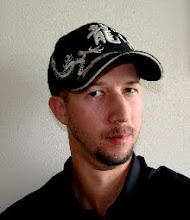1984 is most revealing—and scariest—when you consider that Orwell’s story is about who and what we already are, not a fiction about where we are going.
I suspect this was equally true in the 1960s as it was in the real year 1984; it remains true today.
That’s how I felt when I first read the novel and I was reminded of that same sensation while attending a recent theatrical performance of 1984 at Alchemist Theatre.
The show was well staged against a corroding whitewashed prisonscape, with a partially shirtless Winston shackled up on a higher level in back. When the ex-editor doesn’t deliver the answers that the smooth disembodied voice interrogating him wants to be heard by the four attendant party members observing the political prisoner, Winston is occasionally wracked with electroshock-induced convulsions that coincide with the fluctuation of twin demonic light bulbs. Think Klingon pain sticks.
The story was also well adapted for the stage. You can’t always translate a novel to another medium—or, rather, you can’t always translate it well—but credit should go to the playwright (Michael Gene Sullivan) and the director (David Kaye) for making the most of the opportunities here. By not simply offering a linear adaptation, they actually served the original story better. Russ Bickerstaff of the Shepherd Express makes a good comparison about how theater within theater was used here to good effect. Nothing earth-shattering, but the format worked, and that’s saying something—the premise was that four presumed loyal party members observing him are encouraged to walk through Winston’s social sins so as to purge and deny them by reenactment. Something like why parental authorities might encourage children to try drugs or alcohol or swear words under controlled conditions. To get the drive for rebellion out of the system. To control taboos by permitting them as pretense—putting “wrongthinking” on display for public dissention and ridicule. A sort of reverse psychology.
Just before the very end of the play I actually contemplated that they might be preparing us for a happy ending. There was no happy ending—as there should not be. But my experience dreading that they might be leading us there—toward something like the irreverent studio cut of the real year 1985’s Brazil—suggests to me a sophisticated appreciation for how the director and cast approached 1984’s delivery. It’s been some years since I read the book but they had me believing it might go another way at the end—even though I know it cannot, must not. To explain my reaction, I must have held out some glimmer of hope that Winston won’t be utterly broken in the end, that his struggle on behalf of truth and humanity may not be futile…
I thought the show was well-cast. The flappability of Winston (played by Christopher Elst) was tremendous.
My friend Erin Hartman delivered a sexy, spunky performance as a party member who reenacts the character of Julia, Winston’s rebel lover and porn author, while she and the other quasi-childlike interrogators read through Winston’s confiscated diary. At one point she is making love to the party member playing Winston (Marcee Doherty), but breaks into a humorous aside mid-thrust.
My favorite line was also Hartman’s. Winston doesn’t know how to accept Julia’s sexual advances and makes excuses to protect himself. The Winston-actor describes his physical deficiencies, including varicose veins. “I don’t care about your veins,” Julia returns.
The most uplifting moment of the book and the play occurs just prior to Winston’s utter fall when he has an epiphany while watching the prole woman hang her laundry in the slum. She is singing.
Song is used to good effect in the theatrical version, with songstress Hartman’s beautiful voice complemented by the other characters singing at story-relevant moments, including Jeremy Eineichner’s character also humming the same song.
In some sense, another enduring quality of 1984 is the power of the human voice—whose is listened to, whose keeps on singing, whose gives voice to the voiceless, whose voice drowns out all others.
When the faceless melodious voice of the master interrogator finally reveals himself in the flesh (Michael Keiley), he reminded me a bit of James Spader, a well-manicured devil whose lack of belief in anything redeemable about humanity was believable.
I would be remiss if I neglected to mention the waterboarding scene. This was the most powerful moment for me emotionally. Clayton Hamburg plays a deliciously vile party member who pushes a restrained Winston back into a supine position, places a towel over his face, and dumps a bucket of water onto his face. This obvious resonance with torturous atrocities alleged at Guantanamo Bay caused me to react physiologically. It’s a gut-check moment.
In a recent conversation, the subject of Michel Foucault came up, and the idea that overt censorship and explicit policing is nothing compared to the self-policing of the individual mind. That, to me, has always been a main lesson of 1984—the invisible power of culture manifested in a million individual choices. This is the subtle power that, when abused, is even worse than obvious horrors like waterboarding, totalitarianism, and torture.
1984 depicts a world where editors expunge facts that don’t mesh with narratives promoted by the powerful and where writers earn a wage catering to popular biological impulses; it’s a world where history is forgotten, rewritten, and endlessly reappropriated to suit the needs of the present profit without respect for justice; a world where words are compressed, condensed, illegitimately conjugated and language bastardized in the name of economy; a world where we stare at screens looking for meaning, desperate for authority; it’s a world where we torture ourselves about being wrong and deny ourselves the ability to do right.

No comments:
Post a Comment